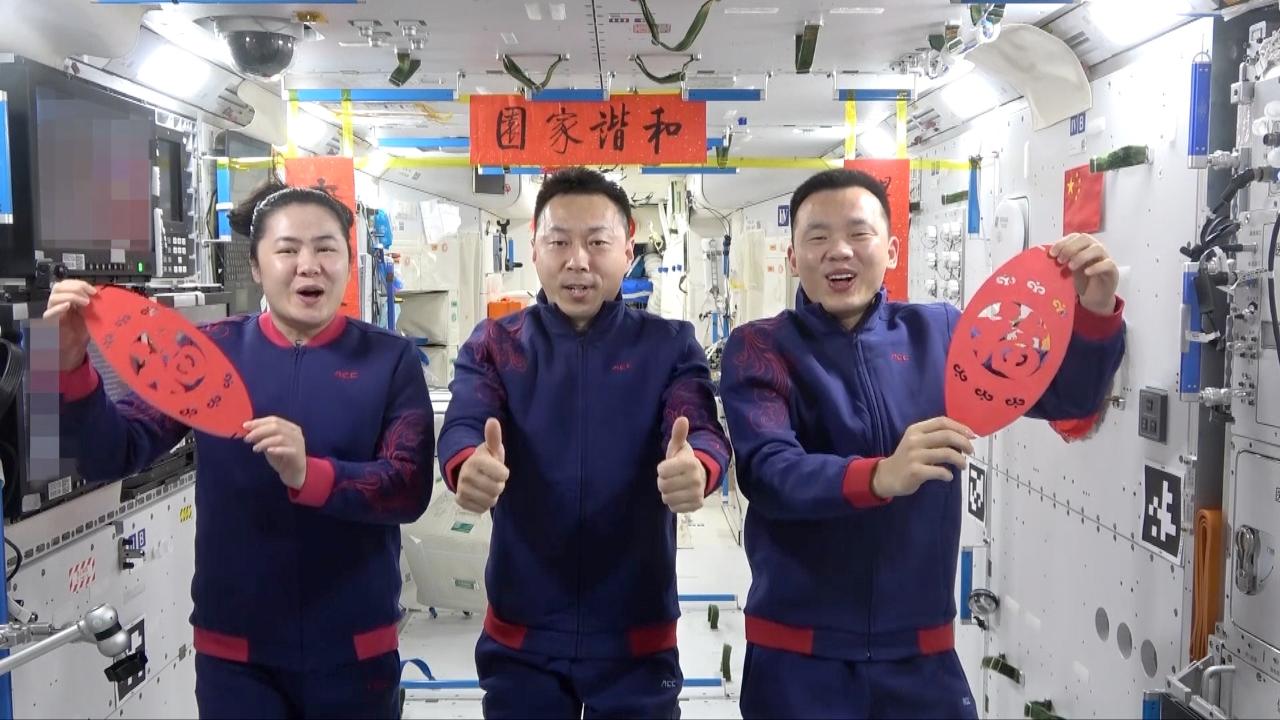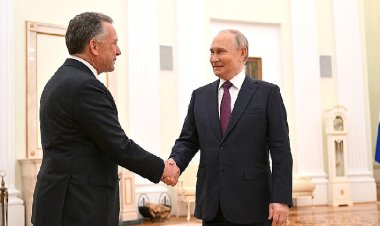Shenzhou-19 Astronauts from China Discuss Their Experiences and Daily Activities in Space
Chinese astronauts from the Shenzhou-19 mission have provided insights into their experiences and daily routines while in space. They discussed various aspects of their work and personal life aboard the spacecraft, highlighting both the challenges and the unique aspects of living in a microgravity environment.

Crew commander Cai Xuzhe, who returned to the space station after a break of about two years, characterized the experience as "warm and familiar" in a video released on Thursday.
This marks Cai's second experience living and working in China's space station, although it is his first time celebrating the Spring Festival in this setting. He previously spent six months in space during the Shenzhou-14 mission in 2022.
The Shenzhou-19 astronauts arrived at the space station on October 30, 2024. Over the past three months, the crew has accomplished numerous tasks, including transitioning responsibilities with the Shenzhou-18 crew, conducting routine maintenance, and completing two spacewalks.
These extravehicular activities are crucial for carrying out repairs, conducting experiments, and testing equipment in the station's exterior environment.
Cai emphasized the importance of their training, which included comprehensive emergency pressure drills and medical rescue exercises. "These exercises have significantly improved our ability to handle unexpected situations, allowing us to work more efficiently and safely," he said.
With support from ground teams, the astronauts have also progressed with various scientific experiments, such as advanced research on human brain organoids and new material exposure tests in space's unforgiving conditions. "We are steadily progressing with our scientific missions, focusing on space life science, microgravity physics, space material science, and aerospace medicine," Cai noted.
Song Lingdong, who took part in two spacewalks, recounted his incredible experience. "Before my first EVA, I imagined what it would be like, but nothing prepared me for the moment I opened the hatch and saw Earth. It was breathtaking," he recalled. "Climbing on the module walls, I felt as if I was walking on clouds."
He added, "I was mesmerized by the beauty of space, but at the same time, I felt the weight of our mission."
The astronauts' initial nine-hour spacewalk successfully demonstrated the safety and effectiveness of China's new-generation spacesuits, according to Song.
In addressing public curiosity about staying energized during long EVAs, Song shared, "We eat high-calorie meals beforehand and drink functional beverages during the task. We highly concentrate on the tasks and don't feel hungry."
Life on the space station isn't solely about work. During the Spring Festival, the crew took some time to relax, connect with their families, and capture breathtaking images of Earth and the cosmos. "We sent New Year greetings from space and recorded videos to cherish these moments," said Song, who aims to document his adventures for his children.
Wang Haoze, China's first female space engineer at the space station, expressed pride in the nation’s accomplishments in space, marveling at the advanced systems of their "space home."
Despite their busy schedules, the astronauts find joy in simple activities. "We float freely like 'sky flyers,' lift heavy objects effortlessly, interact with our AI assistant, and even grow vegetables and raise fruit flies," Wang mentioned.
Wang enjoys writing in her space diary, but her favorite pastime is gazing at Earth through the porthole, taking in the views of its vast oceans and towering mountains. "Seeing our homeland from space fills me with excitement, pride, and longing," said Wang.
To mitigate the effects of weightlessness, the crew adheres to a strict exercise regimen that includes using specialized equipment like the space treadmill, stationary bike, and resistance devices. "These exercises keep our bones, muscles, and hearts healthy. And with balanced meals, we feel strong and energized," Wang explained.
The astronauts also make time to bond during meals, share laughs, and uplift one another’s spirits.
As they marked three months in orbit during the Spring Festival, Wang conveyed a heartfelt message: "May our nation thrive, and may we achieve new heights together, from space to Earth."
This year marks the third Spring Festival celebrated since the completion of the Chinese space station. Nine crew members from Shenzhou-15, Shenzhou-17, and Shenzhou-19 have welcomed the New Year and the Spring Festival while in orbit.
Olivia Brown for TROIB News
Discover more Science and Technology news updates in TROIB Sci-Tech












